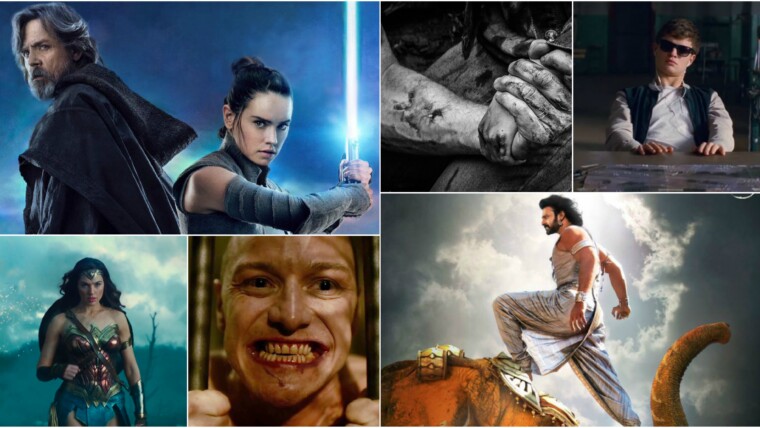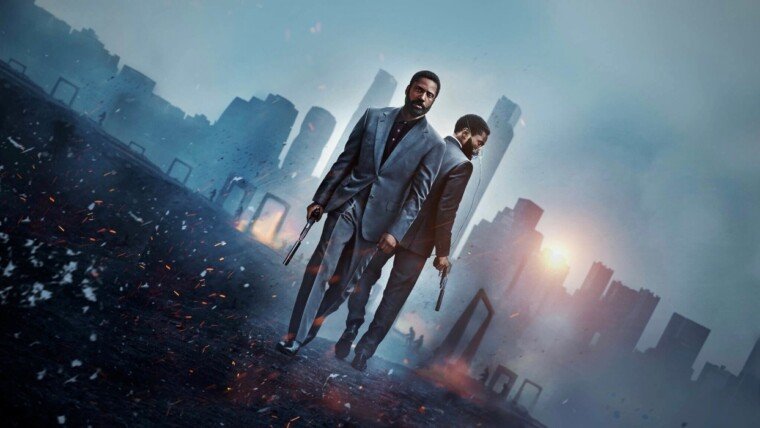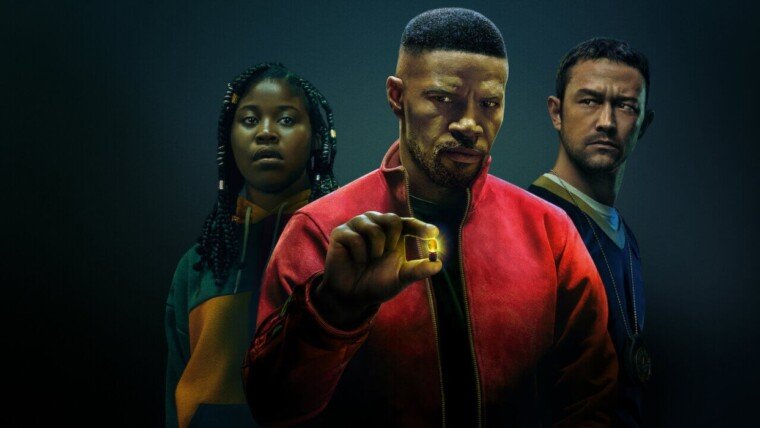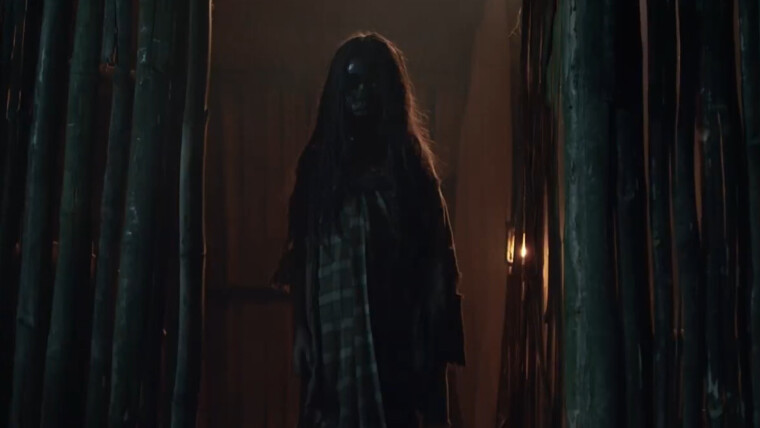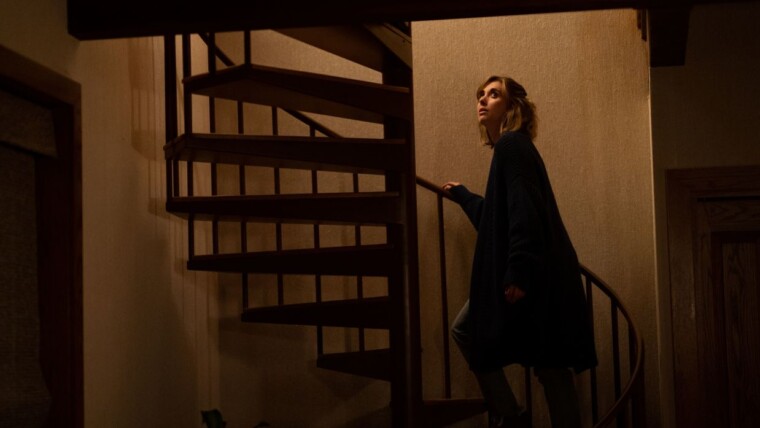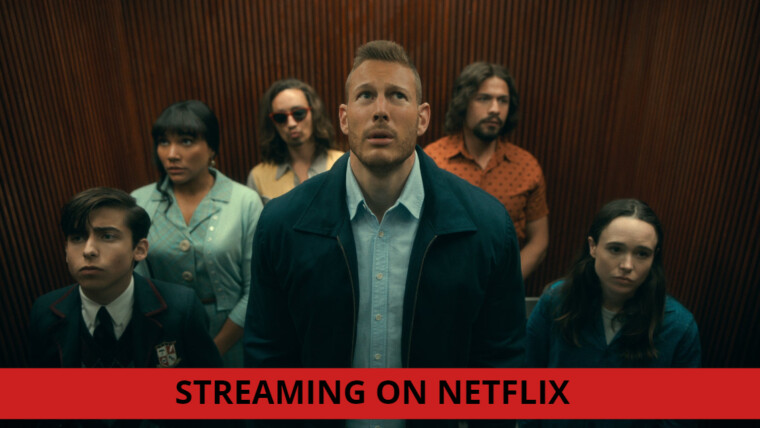“Three Billboards Outside Ebbing, Missouri” will be released in selected Malaysian cinemas on the 22nd of February 2018, as part of the FINEST FIVE — a collaborative effort between 20th Century Fox and GSC International Screens.
When talking about “Kill Bill Vol. 1” Roger Ebert once said, “this movie is all storytelling and no story.” I would say Three Billboards Outside Ebbing, Missouri emits a similar vibe. “Three Billboards” has no beginning (we don’t see the young girl get raped), and no ending (we don’t know if justice is served). But that isn’t the point. The point is its characters and screenplay that holds nothing back… which I will get to in a bit.
This Martin McDonagh film opens with a mother, Mildred (Frances McDormand), in a local billboard store. With her thick Missourian accent, she tells the store owner, “Let’s go over what you can and cannot say on a billboard. I assume you cannot say anything defamatory and you can’t say fuck, piss or cunt… that right?” To which the store owner, who now has a WTF is going on look plastered on his face replies, “Or anus.” Excellent. This is my kinda movie.
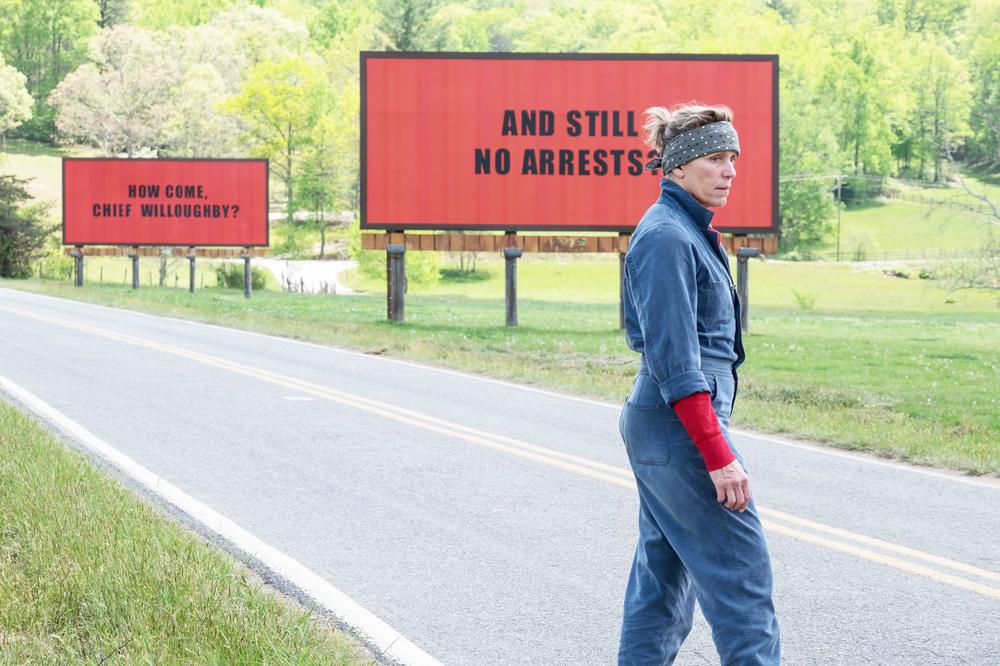
When the three billboards are put up, we begin to understand Mildred’s motivations. They read, “Raped While Dying” “And Still No Arrests?” “How Come, Chief Willoughby?” At first, I wondered what little impact three billboards could have, particularly in a small town which roads have not more than a single car zooming on it at any given time. But word of mouth is a powerful thing. Mildred’s three blood-red billboards get the townsfolk talking and eventually, the media too.
Writer-Director Martin McDonagh (“Seven Psychopaths”) is at his best. These billboards are a wicked reflection of our current society. After all, it is digital billboards — Twitter — that helped slay beasts like Harvey Weinstein, Kevin Spacey, Andy Signore and many others. Here, the three billboards outside Ebbing, Missouri send the town into a frenzy. It is this frenzy that we get tangled up in. Oh, the experience is so, so gratifying.
“Three Billboards” is not for the faint of heart losers. It is the crassest movie of the year in the most amazing of ways. In one scene a daughter calls her mom a bitch. In that same scene, the mom calls her daughter a cunt. In another scene, Mildred asks Dixon if he’s still in the business of nigger torturing. To which Dixon replies, “You can’t say, niggers! It’s coloured people torturing.”
And of course, the movie wouldn’t be complete if it doesn’t have 72 jokes about midgets. It’s f**king insane, I tell ya! I love it. McDonagh’s writing here is addictive. He had me feeling like Leonardo DiCaprio did when he sniffed Cocaine out of his girlfriend’s booty in “Wolf of Wall Street”.

“Three Billboards” doesn’t cross the line. It has two middle fingers and its penis out while cartwheeling over the line. A couple of days ago, someone said on Twitter, “I don’t see why this movie is critically acclaimed. It [“Three Billboards”] features the most farcical version of Missouri and its citizens.” Buddy, I think you’ve completely missed the point. This movie IS an exaggeration. It’s satire. It’s a dark comedy. You laugh… a lot… but you’re not sure if you’re an asshole for laughing. But I guess you gotta be a little bit of a dick, to find this shit funny. I certainly am.
But this movie isn’t just funny. It is also a moving crime drama. We sit at the edge of our seats, desperately hoping that the truth will out. We want the killer to be caught. But we’re just as clueless as the rest of the characters. There are also moments that are violent and moments that will crush your heart. But more than the witty, bold dialogue and the interesting concept, the true standout (s) of this film are the incredibly layered characters.
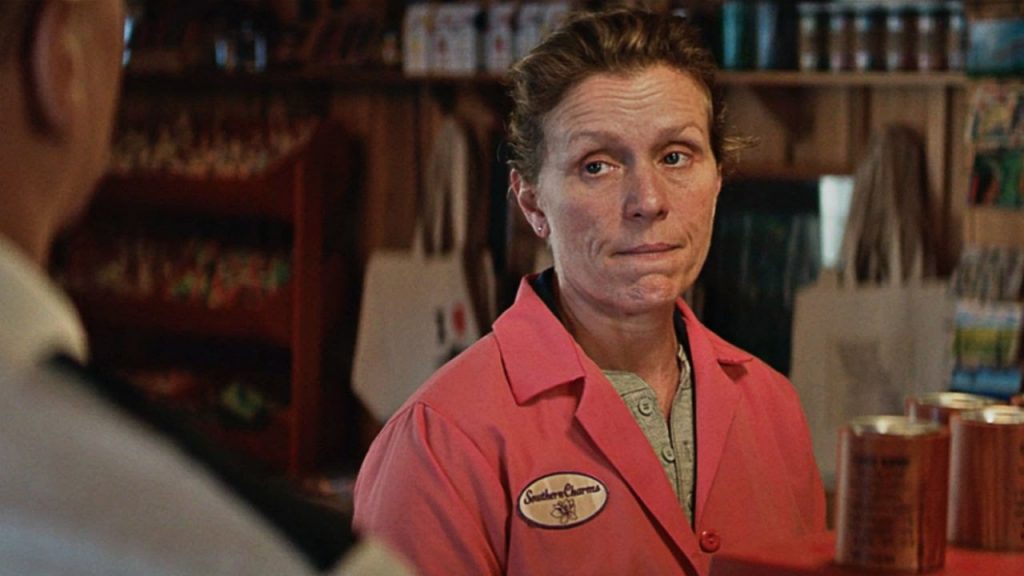
Mildred may be the protagonist, but she’s no angel. Mildred is brave, repeatedly has mic-drop moments and is completely relentless in her pursuit of justice. This is why we root for her. When you take a closer look, though, Mildred is kind of an asshole herself. She’s fueled by anger and doesn’t care about the consequences of her actions.
She’s not bothered if putting up three billboards is going to ruin her son’s life. She doesn’t care for logical reasoning. And she, just like the rest of her town’s people, looks down on the dwarf (Peter Dinklage), even after he lies to authorities to save her ass. This character is brought to life by Frances McDormand who delivers her best performance in years. It would be a tragedy if McDormand doesn’t get an Oscar nomination for her work here.
Next up we have Officer Willoughby, played by Woody Harrelson. At the start of the movie, we’re led to believe that he’s lazy and uninterested in solving the murder of Mildred’s daughter. As the layers are peeled, we realize that is not the case. He did try his hardest to solve the case, but explains that sometimes cases just go cold and it takes a stroke of luck to nab the killer. He genuinely cares. Even when the whole town is starting to turn on Mildred, Willoughby supports her, not necessarily publically, of course.
Willoughby is perhaps the true hero of “Three Billboards”, that is until he himself does a selfish act. Or perhaps after listening to his explanation, it isn’t selfish. I’m still undecided. I also cannot imagine anyone else playing this character. Woody Harrelson brings such charm to all his roles that even when he’s being a prick, you can’t help but get behind him.

And then we have Sam Rockwell’s character, Officer Dixon. He’s the antithesis of Officer Willoughby. He’s a drunk piece of shit that still gets pushed around by his mother, who’s also an asshole. Dixon is the town bully. If you don’t dance to his beat, he will toss you out of the window, literally. And he’s bloody racist. But what Martin McDonagh does very well, is flip the narrative on its head. All three characters start at one point and because of the chaos of the three billboards, they’re very different characters by the end of the movie.
This is especially true for Officer Dixon, who by the end of the movie slowly wins you over. Interestingly, the turns these characters undergo aren’t forced. In the case of Dixon, it isn’t a ‘redemption’ arc for the sake of having one. His arc reminds me of Jamie Lannister’s in “Game of Thrones”. By the end of it, Dixon isn’t a good guy; he’s just less of a dickhead than he was before. Rockwell disappears into his role completely — he’s the standout of this movie.
“Three Billboards” is a superb film because it doesn’t give a crap about what you think. There is no ‘moral of the story’; just a script that is tight as fish pussy. There are no good guys and bad guys. Only massive assholes and regular ones. Here, Martin McDonagh crosses every line in the universe to land a joke, while also maintaining a sense of earnestness, and also moving you to tears. The ‘fucks’ and the ‘cunts’ and the N-words aren’t thrown in there for the sake of being cool. Like a Tarantino movie, the dialogue here is poetry.


